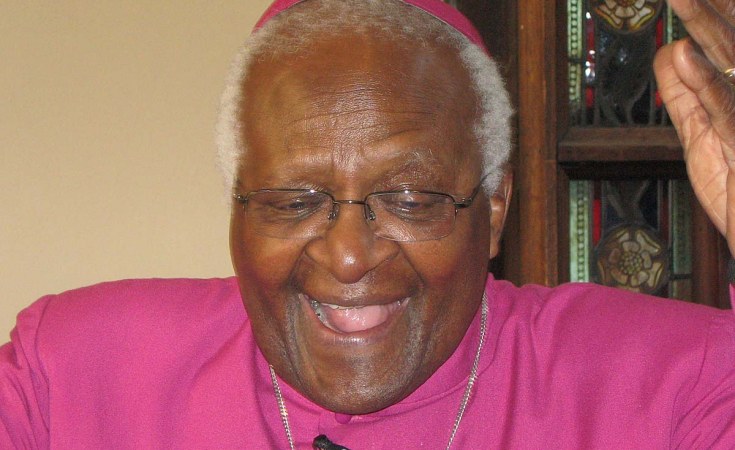Cape Town — Archbishop Emeritus Desmond Tutu announced on Thursday that he will retire from public life on his 79th birthday in October.
Addressing the press in Cape Town's St. George's Cathedral, the Nobel Peace prize winner said he will limit his time in his office to one day a week until the end of February next year, when the office will begin its official winding-down process.
He retired as Archbishop of Cape Town in 1996 but soon joined South Africa's Truth and Reconciliation Commission, the body tasked with investigating human rights violations by liberation movements and the apartheid government. After concluding the TRC process, the "Arch" as he is affectionately known, retired once again but continued to fulfil a hectic schedule of international appointments.
After 35 years in public life, he told journalists on Thursday that the time has now come to slow down, sip tea with his wife in the afternoons, watch cricket, rugby and soccer and visit his children and grandchildren, rather than travelling to conferences, conventions and university campuses.
"Instead of growing old gracefully, at home with my family reading, writing, praying and thinking, too much of my time has been spent at airports and in hotels," chuckled Tutu.
However his involvement with The Elders, the group of retired statesmen and women, and a group of Nobel laureates will continue as will his support for the development of the Desmond Tutu Peace Centre in Cape Town.
He said he will also step down from his positions as chancellor of the University of the Western Cape and as a member of the United Nations Advisory committee on the Prevention of Genocide, among others. He will also review the complete list of organisations with which he is involved as patron.
Tutu acknowledged there would be times when he would not be able to resist speaking out publicly on issues, but said he will no longer be available for media interviews, and quoted Nelson Mandela on his retirement: "Don't call me, I will call you."
Asked if he was retiring too early, he responded that he wants to use his time to do things that he was not able to do during his time in office.
He thanked South Africans for affording him the space and support to do his work and for allowing him to represent them at the Nobel Peace Prize ceremony in 1984.
He also thanked them for contributing to the efforts of the Truth and Reconciliation Commission and above all for proving at the Fifa 2010 World Cup that ubuntu is not "some theoretical construct, but a living, breathing social principle and a lesson to the world.
"Thank you to my wife, Leah, for being so permissive and supportive and strong. Marrying Leah was the best decision I have ever made in my life. Now I will have the time to serve her hot chocolate in bed in the morning, as any doting husband should", concluded Tutu with broad smile on his face.
Tutu inspired the term "Rainbow Nation", popularised by Nelson Mandela and now used around the world to describe South Africa.


